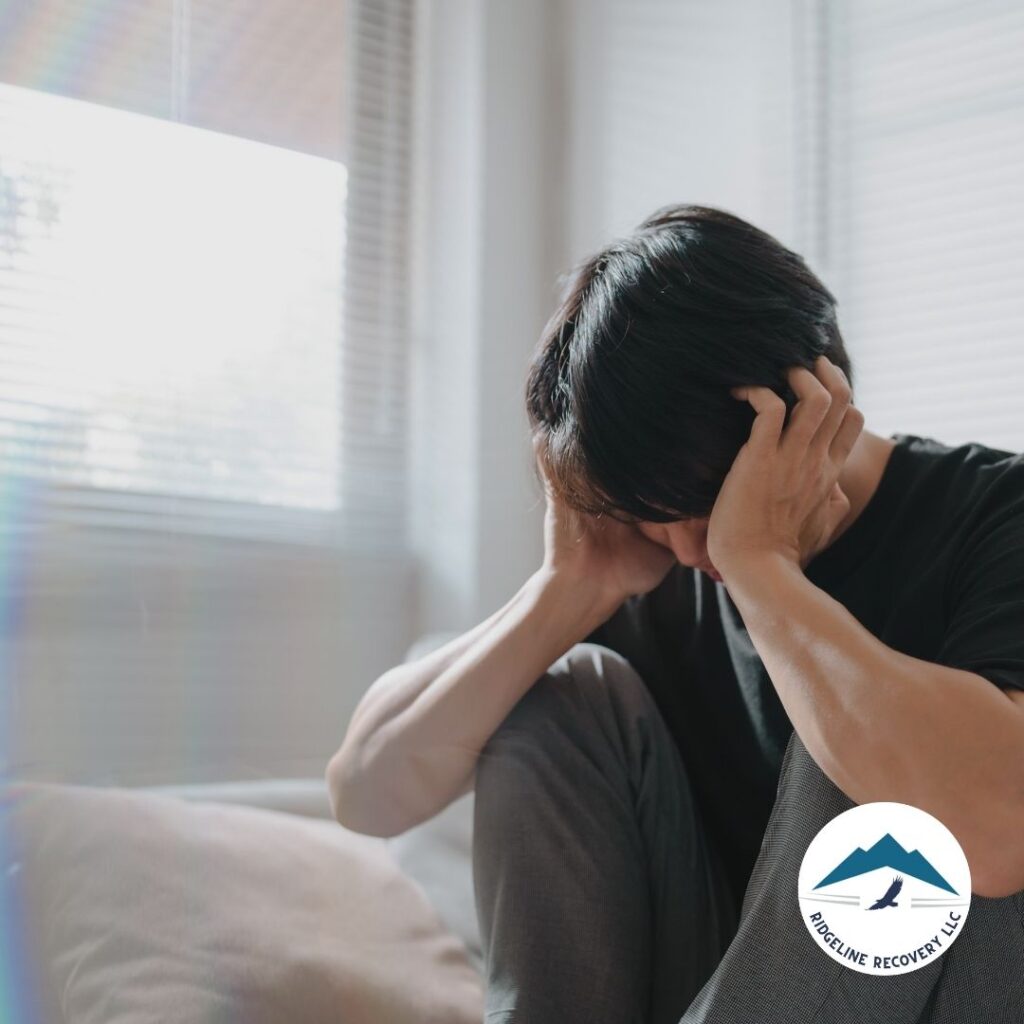Addiction Treatment Near Me? Ever thought about what keeps people from finally breaking free from addiction?
Or why they’ll go for months—even years—without the help they need?
It’s not that they don’t want freedom. It’s that they don’t know where to start.
If that sounds familiar, or if you’re looking for real answers on how addiction treatment can actually work, you’re in the right place.
Whether you’re ready to start or just dipping your toes, we’re here to make this easy.
Let’s break it down step-by-step.
Why Do People Search for “Addiction Treatment Near Me”?
Let’s get straight to it.
When people look up “addiction treatment near me,” they’re not just looking for directions.
They’re looking for freedom.
They’re looking for something that’ll get them past the same cycles, the same struggles.
They want support, and they want it close to home. They want addiction therapy near me that’ll actually work for their unique story.
And here’s the thing: addiction therapy isn’t just a temporary solution.
Done right, it’s a way out that actually lasts.
Real Talk: Why People Struggle With Addiction
Why do people turn to substances, and why does it become something they can’t shake?
For most, it’s not about having “fun” or “losing control.” It’s about coping.
Addiction becomes the crutch that holds you up when everything else in life feels like it’s crumbling.
It becomes the go-to answer for stress, trauma, loneliness, or even just boredom.
But it doesn’t have to be that way forever.
Addiction therapy and addiction treatment near me is about building new habits, new responses, and a new life without relying on substances.
Step 1: Deciding Which Type of Addiction Treatment You Need
So, what does addiction treatment actually look like?
Well, it depends.
There are loads of different options, but let’s make this simple.
Here are the main categories for addiction treatment near me:
1. Detox Centers
This is where it starts.
Before you can focus on rebuilding, you’ve got to clean out your system.
A detox center helps you safely stop the substance you’re dependent on, managing the symptoms so you’re not suffering through withdrawals on your own.
Want to know why this matters? Detox isn’t just about stopping use—it’s about doing it in a way that doesn’t wreck you.
When it’s done under medical supervision (like with some programs that offer Vivitrol clinics near me), it’s a lot safer, and you’re more likely to stick with it.
2. Inpatient Rehab
After detox, many people go straight to inpatient rehab.
This is where you stay at a facility, sometimes for 30 days, sometimes longer.
Why stay somewhere?
Because breaking free from addiction in your usual environment can feel impossible.
In inpatient care, you’re in a place designed for healing, away from the everyday triggers, distractions, and toxic routines.
Addiction treatment Columbus centers often include structured schedules, therapy sessions, and 24/7 support.
3. Outpatient Programs
Not everyone can drop everything for inpatient rehab, right?
If you’ve got family, a job, or commitments that can’t be paused, outpatient programs might be the better option.
Outpatient programs let you go through addiction therapy services while living at home.
You’ll still get the tools, the counseling, and the support, but you won’t need to stay overnight.
The Role of Faith-Based and Christ-Centered Addiction Treatment
Some people need more than just detox and therapy.
They need hope.
They need something to believe in, something that gives their recovery a purpose beyond just survival.
Faith-based addiction treatment or Christian drug rehab centers near me offer that.
These programs blend traditional therapy with spiritual guidance, creating an approach that’s about healing both the body and soul.
It’s not for everyone, but if you’re looking for something deeper, places like church rehabilitation centers or Christian outpatient rehab near me can be powerful options.
They’re not just about stopping addiction—they’re about finding a purpose that fuels a life free from addiction.
How to Find Addiction Treatment Services That Actually Work
Finding the right addiction treatment near me can feel like a maze.
But here’s the good news: you don’t need to settle for just any place.
1. Look for Places With Certified Staff and Proven Methods
It’s tempting to go for the cheapest or closest option.
But if you’re serious about change, look for places with licensed therapists, counselors, and a track record of success.
Programs like addiction recovery Columbus are staffed with people who know what they’re doing and aren’t just going through the motions.
2. Check Out the Support Options
Addiction recovery isn’t a one-and-done thing.
The best programs offer support networks, follow-up care, and resources that keep you on track even after you’ve “graduated.”
Whether that’s church-based recovery programs or secular support groups, the goal is to build a community that’ll back you up long-term.
3. Consider Telemedicine for Convenience
Can’t make it to a facility?
Addiction telemedicine is a new option that lets you access care remotely.
You’ll get to connect with counselors and specialists from home—ideal if you’re balancing work, family, or other commitments.
Understanding the Cost of Addiction Treatment
Alright, let’s talk about the elephant in the room.
How much does addiction treatment near me actually cost?
Why Cost Matters (And Why It Doesn’t)
Look, I get it. Addiction treatment isn’t cheap, and that can be a dealbreaker.
But here’s the thing—what’s the cost of not doing it?
What’s the cost of staying stuck, cycling through the same problems, losing time, relationships, and energy?
When you’re weighing the price, think of it as an investment. You’re not just paying for a service; you’re investing in a new life.
Addressing Mental Health in Addiction Treatment
Let’s get one thing straight—addiction isn’t just about the substance.
Most people dealing with addiction have underlying mental health struggles.
Things like anxiety, depression, PTSD—these are often part of the picture.
And here’s the catch: if you don’t deal with the mental health side, you’re setting yourself up to fall back into old patterns.
Mental Health Services to Look For
If you’re serious about long-term change, look for addiction treatment centers that also offer mental health services near me.
This can include:
- Mental health therapists near me
- Mental health hospitals near me
- Mental health clinics near me
These places aren’t just treating the addiction—they’re treating you as a whole person.
A Guide to Common Treatment Options for Mental Health and Addiction
So, what are some options if you’re dealing with both addiction and mental health challenges?
- Dual Diagnosis Programs: These are programs specifically designed for people facing both addiction and mental health issues. They don’t just look at one—they treat both.
- Individual Therapy: Sometimes, one-on-one therapy with a mental health therapist can make a world of difference.
- Support Groups: Whether it’s a church-based recovery program or a secular one, groups let you connect with others who get it.
Real Talk: Overcoming Triggers and Avoiding Relapse
Let’s get real.
You could go through the best addiction therapy in the world and still hit bumps down the road.
It’s not about never getting triggered—it’s about learning to manage those triggers.
Common Triggers and How to Tackle Them
- Stress: Life’s not gonna stop throwing challenges your way, right? Whether it’s a job, family, or financial pressure, stress will come.
- People and Places: Sometimes, it’s the people you’re around or places you go that make staying sober hard.
- Boredom: Sounds simple, but boredom can be a huge trigger for people.
How Addiction Therapy Teaches You to Deal with Triggers
The best addiction treatment near me doesn’t just help you get clean.
It teaches you tools—things like:
- Mindfulness techniques for stress.
- New routines for handling boredom.
- Healthy support systems that help you stay on track.
Building a Life Beyond Treatment
The goal isn’t just to break free from addiction.
It’s to build a life you don’t want to escape from.
Here’s what happens when you go through addiction therapy services that actually work:
- You’ll start to trust yourself again.
- You’ll gain a sense of control, purpose, and freedom.
- And you’ll have a support system that’s there to back you up.

Recovery is a Journey, Not a Destination
When you think about addiction treatment near me, keep in mind that recovery is not a single event. It’s a process, a journey.
Just like building a business or cultivating a relationship, recovery requires consistent effort, dedication, and the right resources.
Let’s dive deeper into the various aspects of addiction treatment and recovery, so you can equip yourself with everything you need to stay on track.
Step 1: Understanding the Process of Addiction Recovery
The Stages of Recovery
Recovery typically involves several stages. Understanding these can help you feel more prepared and empowered.
- Pre-contemplation: At this stage, individuals often don’t recognize their addiction as a problem. This is a crucial moment for intervention and education.
- Contemplation: This is when people start to think about change. They may research addiction recovery near me and start considering their options.
- Preparation: This is the stage where individuals get ready to take action. They might reach out to a treatment center or attend a support group.
- Action: This is where the rubber meets the road. Individuals actively participate in addiction therapy services, group therapy, or inpatient treatment.
- Maintenance: After completing treatment, maintaining sobriety becomes the focus. Continued participation in support groups or outpatient programs is vital.
- Relapse: Relapse can be part of the journey. It’s important to recognize that this doesn’t mean failure; it’s an opportunity to learn and adjust your approach.
By understanding these stages, you can recognize where you or your loved one may be in the process and tailor your support accordingly.
Step 2: The Role of Aftercare in Addiction Treatment
Once you’ve gone through addiction treatment near me, what’s next?
The journey doesn’t stop when you leave a facility.
Aftercare is a critical component of long-term recovery.
What Does Aftercare Look Like?
- Continued Therapy: Engaging in ongoing therapy sessions helps individuals process their experiences and develop new coping strategies.
- Support Groups: Participating in groups like Alcoholics Anonymous (AA) or Narcotics Anonymous (NA) can provide community support.
- Sober Living Houses: Some individuals benefit from transitional living environments that encourage sobriety while providing structure.
- Relapse Prevention Plans: These are personalized strategies that help individuals identify triggers and develop effective responses.
Step 3: Building Your Support System
One of the most powerful tools in addiction recovery is a robust support system.
Surrounding yourself with positive influences can make a significant difference in your journey.
Who Should Be Part of Your Support System?
- Family and Friends: Choose those who genuinely support your recovery and understand your journey.
- Sober Friends: Connect with people who are also in recovery to share experiences and encourage each other.
- Therapists and Counselors: Ongoing professional support can help navigate challenges as they arise.
- Support Groups: Joining groups provides community and understanding that you’re not alone in this journey.
Exploring Addiction Treatment Near Me Options
So, you’re on board with getting help.
Now, let’s talk specifics.
In-Person Support Options
When you search for “addiction treatment near me,” you’ll find a variety of options.
- Local Treatment Centers: These can include both inpatient and outpatient facilities that offer structured programs.
- Community Support Groups: Groups like AA or NA meet regularly in local communities and are often free to attend.
- Counseling Services: Many therapists specialize in addiction and can provide personalized care.
Online Support Options
The internet offers a wealth of resources that can be beneficial for those in recovery.
- Telehealth Therapy: Many therapists offer virtual sessions, making it easier to get help from home.
- Online Support Groups: Digital platforms have opened doors to support groups that are more accessible and less intimidating.
- Educational Resources: Websites and online courses can provide valuable information about addiction, recovery strategies, and mental health.
Common Misconceptions About Addiction Treatment
It’s easy to get wrapped up in myths about addiction treatment that can deter you from seeking help.
Let’s Break Down Some of the Most Common Misconceptions:
- “I’m not addicted enough to seek help.”
Reality: There’s no minimum threshold for seeking help. If you feel that your substance use is a problem, it’s worth addressing. - “Treatment is a one-size-fits-all approach.”
Reality: Every individual’s journey is different. Effective addiction therapy tailors approaches to fit each person’s unique needs. - “Once I’m in treatment, I’m fixed.”
Reality: Recovery is ongoing. Even after treatment, continued effort and support are necessary. - “I can do this alone.”
Reality: Isolation can worsen addiction. Support from professionals and peers significantly enhances the chances of successful recovery.
The Importance of Holistic Approaches
Beyond traditional methods, many treatment centers now incorporate holistic approaches into their programs.
These focus on the whole person—mind, body, and spirit.
What Do Holistic Approaches Include?
- Mindfulness and Meditation: Techniques that help individuals remain present and grounded.
- Yoga and Exercise: Physical activity helps reduce stress and improve overall well-being.
- Nutritional Counseling: A healthy body contributes to a healthy mind. Understanding nutrition plays a critical role in recovery.
- Art and Music Therapy: Creative expressions can serve as therapeutic outlets for emotions.
These holistic methods can be powerful complements to traditional addiction treatment near me, enhancing emotional resilience and overall well-being.
Finding the Right Fit for You
As you search for addiction treatment near me, remember that the fit is crucial.
What works for one person may not work for another.
Questions to Ask When Evaluating a Treatment Center
- What is the center’s approach to addiction treatment?
Are they evidence-based? Do they incorporate holistic practices? - What are the qualifications of the staff?
Look for certified therapists, medical professionals, and counselors. - What types of programs do they offer?
Do they have inpatient, outpatient, and aftercare options? - What is the facility’s environment like?
Is it supportive and conducive to healing? - How do they measure success?
What outcomes do they track?
Finding a center that resonates with your needs and values is essential for effective treatment.
The Power of Community in Recovery
It’s no secret that community plays a pivotal role in recovery.
Whether through friends, family, or support groups, being part of something bigger than yourself can provide strength when you need it most.
Building Your Recovery Community
- Attend Local Meetings: Find addiction recovery Columbus groups and get involved.
- Engage in Group Activities: Participate in social events that encourage sober fun and connection.
- Volunteer: Giving back to others in recovery can solidify your own commitment to sobriety.
- Connect Online: Join online forums and social media groups that focus on recovery.
Your community can be your greatest asset in the recovery journey.
Celebrating Milestones in Recovery
Don’t forget to celebrate your progress.
Each step you take toward recovery is a victory worth acknowledging.
Ideas for Celebrating Recovery Milestones
- Personal Reflection: Take time to acknowledge how far you’ve come.
- Share with Your Support Network: Celebrate with friends and family who have supported you.
- Reward Yourself: Treat yourself to something special—a meal, a trip, or something you’ve wanted for a while.
- Set New Goals: Use this milestone as a launchpad for setting new personal goals.
Maintaining Your Recovery
As you continue your journey, it’s important to implement strategies that keep you grounded.
Tips for Sustaining Long-Term Recovery
- Routine: Develop daily habits that promote wellness, such as regular exercise and healthy eating.
- Self-Care: Prioritize mental and emotional health. Engage in activities that make you feel good.
- Stay Connected: Keep in touch with your support system and attend meetings regularly.
- Learn About Triggers: Recognize and avoid situations that could lead to a relapse.
- Practice Gratitude: Reflect on what you’re thankful for; this can shift your mindset toward positivity.
Real Stories of Recovery
Sometimes, hearing others’ stories can inspire you in your journey.
Case Study: Finding Freedom from Addiction
John’s Journey:
John was a regular guy, but he found himself lost in a world of alcohol and addiction.
For years, he struggled alone, telling himself he could handle it.
But deep down, he knew it was taking over his life.
When he finally decided to search for addiction treatment near me, he found a local program that resonated with him.
After completing detox and moving into an outpatient program, John learned new coping strategies.
Now, he’s not only sober but thriving, supporting others in their recovery.
This journey proves that while the path may be challenging, the rewards of recovery are monumental.
Understanding the Types of Addiction Treatment Available
When you’re looking for addiction treatment near me, it’s essential to understand the various treatment options available.
Each type caters to different needs and preferences, so knowing your options can help you make an informed decision.
Inpatient Treatment Programs
Inpatient treatment programs provide a structured environment for individuals needing intensive support.
Key Features of Inpatient Treatment:
- 24/7 Support: With around-the-clock medical and emotional support, individuals are better equipped to navigate the initial stages of recovery.
- Comprehensive Treatment Plans: Inpatient programs often include medical detox, therapy sessions, and holistic approaches.
- Peer Support: Being surrounded by others who share similar experiences can foster a sense of community.
When to Choose Inpatient Treatment:
- Severe addiction where withdrawal symptoms may pose risks.
- A history of unsuccessful outpatient attempts.
- A strong desire to immerse oneself in a recovery-focused environment.
Outpatient Treatment Programs
Outpatient treatment is less intensive than inpatient programs, allowing individuals to maintain some of their daily responsibilities while receiving care.
Key Features of Outpatient Treatment:
- Flexibility: Patients can continue working, attending school, or fulfilling family obligations while participating in treatment.
- Variety of Options: Outpatient programs can include partial hospitalization (PHP), intensive outpatient programs (IOP), and standard outpatient therapy.
- Individual and Group Therapy: Many outpatient programs focus on a combination of therapies tailored to the individual.
When to Choose Outpatient Treatment:
- Mild to moderate addiction issues.
- A supportive home environment.
- A strong motivation to change.
Detoxification Services
Detoxification, or detox, is often the first step in the treatment process. It involves the safe removal of substances from the body.
Understanding Detoxification:
- Medical Supervision: Detox is best done under the supervision of medical professionals to manage withdrawal symptoms safely.
- Duration: The length of detox varies depending on the substance, the severity of addiction, and individual health.
- Supportive Care: Many detox programs also provide counseling and support to prepare individuals for ongoing treatment.
Holistic Approaches to Addiction Treatment

Many treatment centers incorporate holistic methods alongside traditional therapy to promote overall well-being.
Why Choose Holistic Approaches?
Holistic approaches recognize that addiction affects not just the body but the mind and spirit as well.
They aim to heal the whole person.
Common Holistic Therapies in Treatment:
- Mindfulness Meditation: Helps individuals stay present and develop coping mechanisms for cravings and stress.
- Yoga: Promotes physical health, reduces anxiety, and encourages a sense of community.
- Nutritional Therapy: Addresses the importance of a balanced diet in recovery, which can significantly impact mental health.
- Art and Music Therapy: Allows individuals to express themselves creatively, aiding in emotional healing.
Specialized Treatment Options
Certain individuals may benefit from specialized treatment programs tailored to their unique needs.
Dual Diagnosis Treatment
For individuals facing both addiction and mental health disorders, dual diagnosis treatment addresses both issues simultaneously.
Importance of Dual Diagnosis:
- Comprehensive Care: Tackling both addiction and mental health ensures a holistic recovery process.
- Customized Treatment Plans: Professionals create a treatment plan that addresses the complexities of both conditions.
Faith-Based Treatment
For those who find strength in spirituality, faith-based treatment options provide support grounded in religious or spiritual beliefs.
Key Features of Faith-Based Treatment:
- Integration of Faith: Treatment often incorporates spiritual teachings and practices.
- Community Support: Many faith-based programs offer a supportive community that shares similar values.
- Religious Counseling: Access to counselors who understand the interplay of faith and recovery.
The Role of Family in Addiction Treatment
Family dynamics play a crucial role in recovery.
The support of loved ones can enhance treatment outcomes and help maintain long-term sobriety.
Family Therapy and Involvement
Engaging family members in therapy can address underlying issues and improve communication.
Benefits of Family Therapy:
- Understanding Triggers: Families learn about addiction and how to support their loved ones without enabling them.
- Strengthening Relationships: Therapy can mend broken relationships and foster a supportive home environment.
- Building a Recovery Network: Families become an integral part of the recovery journey, providing ongoing support.
Resources for Addiction Treatment Near Me
When you’re searching for addiction treatment near me, various resources can help guide you toward the right program.
Online Resources
- SAMHSA’s Treatment Locator: The Substance Abuse and Mental Health Services Administration offers a tool to find local treatment centers.
- NAMI: The National Alliance on Mental Illness provides resources and support for individuals and families affected by mental health issues, including addiction.
- Local Recovery Hotlines: Many communities offer helplines to connect individuals with treatment options.
Community Resources
- Local Health Departments: Many provide information about available resources for addiction treatment and support.
- Nonprofit Organizations: Local nonprofits may offer support groups, counseling services, or educational resources.
- Religious Organizations: Churches and faith-based groups often have programs focused on recovery and can provide support.
FAQs About Addiction Treatment
As you explore addiction treatment near me, you may have several questions.
Common Questions About Addiction Treatment
1. What should I expect during my first visit to a treatment center?
You’ll typically undergo an intake assessment to evaluate your needs and develop a treatment plan.
2. How long does treatment usually last?
Treatment length varies by individual needs. Some programs last 30 days, while others may extend for several months.
3. Is insurance accepted at treatment centers?
Many treatment centers accept insurance. It’s essential to check with your provider to understand your coverage.
4. Can I visit my loved one while they’re in treatment?
Visitation policies vary by facility. Most centers allow scheduled visits to support the recovery process.
5. What if I relapse during recovery?
Relapse can happen. The important thing is to reach out for help immediately. Many programs offer support for relapses.
Success Stories: Inspiration from Real Lives
Hearing success stories can motivate and inspire those considering addiction treatment near me.
Case Study: Sarah’s Transformation
Sarah’s Journey:
Sarah struggled with prescription drug addiction for years, feeling isolated and hopeless.
When she finally decided to seek help, she found a local program that offered a supportive community and comprehensive care.
Through therapy, she learned coping skills and reconnected with her family.
Now, Sarah is not only sober but also works as a recovery coach, helping others on their journey to sobriety.
Case Study: Mark’s Path to Recovery
Mark’s Experience:
Mark battled alcohol addiction and lost touch with friends and family.
Desperate for change, he searched for addiction recovery Columbus and found a supportive program that included group therapy and holistic practices.
Today, he shares his story to inspire others, showing that recovery is possible with the right support.
Embracing Change and the Future
Recovery is about more than just overcoming addiction; it’s about embracing change and building a fulfilling life.
Setting Goals for the Future
- Personal Goals: Identify what you want to achieve in your personal life—career, education, relationships.
- Health Goals: Focus on maintaining physical and mental health through regular exercise, nutrition, and self-care.
- Community Involvement: Get involved in local recovery events or advocacy work to support others in their journey.
- Continued Education: Stay informed about addiction and recovery through workshops, seminars, or online courses.
Conclusion: Your Path to Recovery Starts Here
As you navigate the journey of addiction recovery, remember that seeking help is a sign of strength.
You’re not alone, and there are countless resources available when searching for addiction treatment near me.
From personalized treatment options to community support, you have the power to change your life.
Take that first step, reach out for help, and embrace the journey ahead.
With dedication, the right resources, and a solid support network, freedom from addiction is within your reach.
Call Us Now!
If you or a loved one is struggling with heroin or alcohol dependency, reach out to Ridgeline Recovery Center in Columbus, Ohio, today. At Ridgeline Recovery, we offer a path to hope and healing. Our comprehensive Addiction Recovery services include Addiction Therapy, Addiction Treatment, Vivitrol Clinic and specialized Mental Health Services designed to support your journey to recovery.
We provide Aftercare Programs and Peer Support to ensure you have ongoing assistance after treatment. Our dedicated team offers Case Management and Child Services for those needing extra support. For individuals who prefer a faith-based approach, we offer Faith-Based Recovery options.
Our programs feature Group and Individual Counseling, along with Medication-Assisted Treatment (MAT) to address your unique needs. We also have an Intensive Outpatient Program (IOP) and a Partial Hospitalization Program (PHP) for more structured care.
Our team includes Registered Nurse Services, Psychiatric Services, and Therapeutic Behavioral Services (TBS) to provide comprehensive support throughout your recovery process. We work with various Insurance Coverage plans to help you access the care you need.
Don’t wait—contact us now to start your journey toward a brighter future with Ridgeline Recovery.
For more stories and information Contact Us, visit our Blog page and Stories & Highlights.







